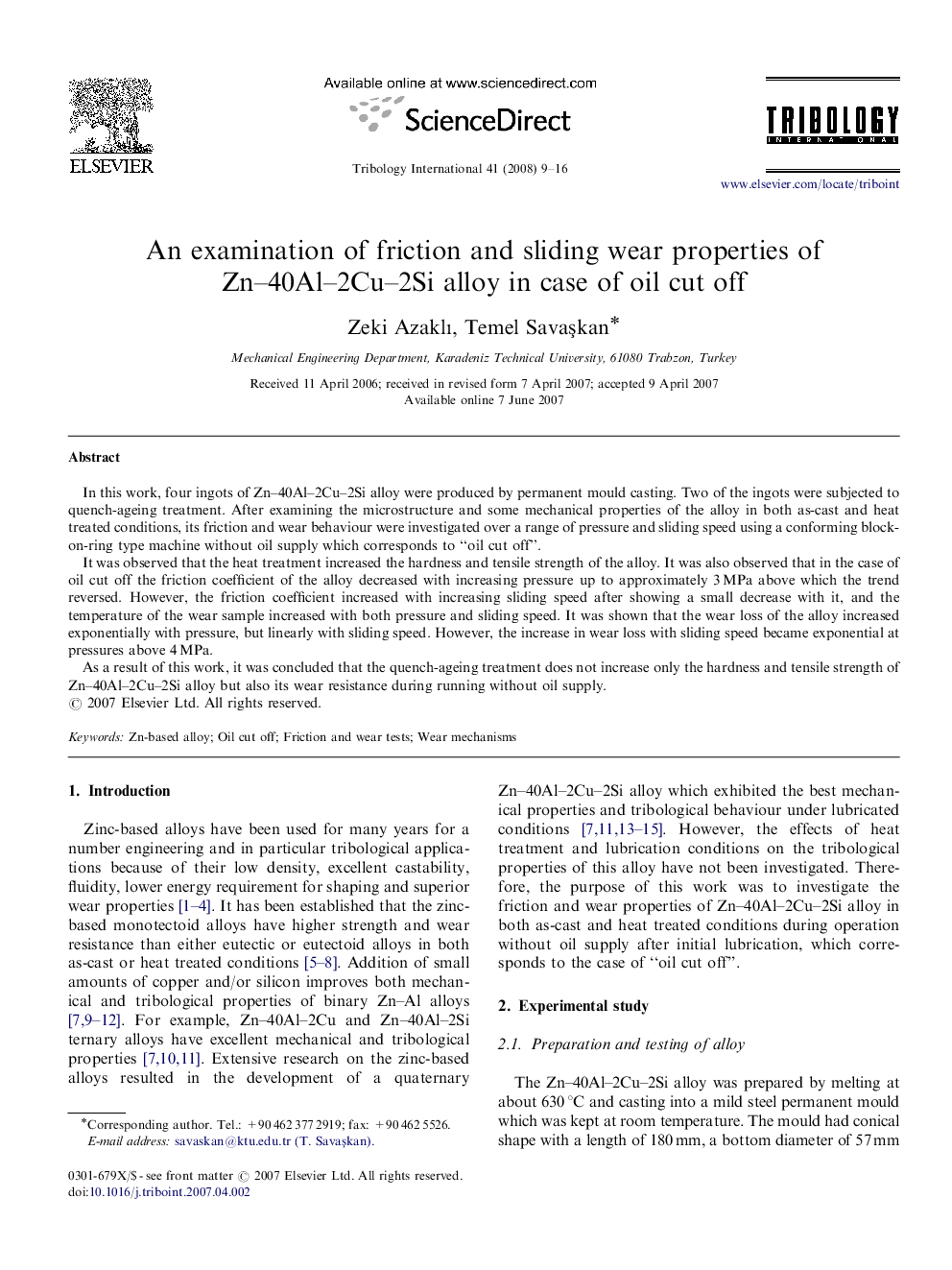| Article ID | Journal | Published Year | Pages | File Type |
|---|---|---|---|---|
| 616538 | Tribology International | 2008 | 8 Pages |
In this work, four ingots of Zn–40Al–2Cu–2Si alloy were produced by permanent mould casting. Two of the ingots were subjected to quench-ageing treatment. After examining the microstructure and some mechanical properties of the alloy in both as-cast and heat treated conditions, its friction and wear behaviour were investigated over a range of pressure and sliding speed using a conforming block-on-ring type machine without oil supply which corresponds to “oil cut off”.It was observed that the heat treatment increased the hardness and tensile strength of the alloy. It was also observed that in the case of oil cut off the friction coefficient of the alloy decreased with increasing pressure up to approximately 3 MPa above which the trend reversed. However, the friction coefficient increased with increasing sliding speed after showing a small decrease with it, and the temperature of the wear sample increased with both pressure and sliding speed. It was shown that the wear loss of the alloy increased exponentially with pressure, but linearly with sliding speed. However, the increase in wear loss with sliding speed became exponential at pressures above 4 MPa.As a result of this work, it was concluded that the quench-ageing treatment does not increase only the hardness and tensile strength of Zn–40Al–2Cu–2Si alloy but also its wear resistance during running without oil supply.
